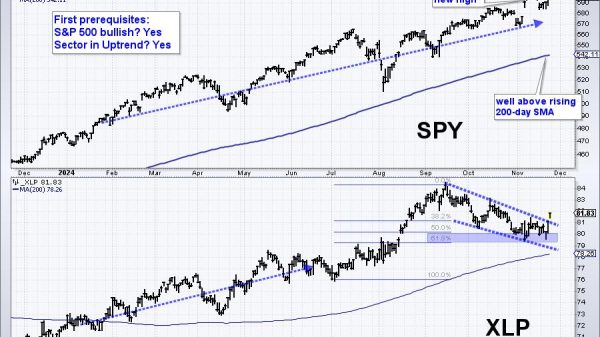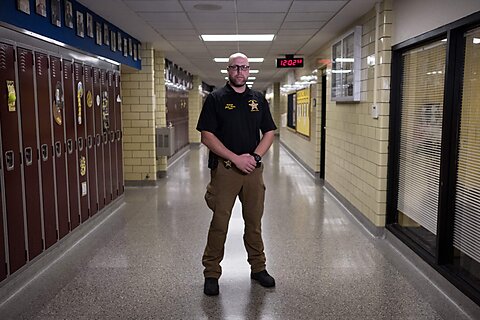Kayla Susalla
School is back in session and many districts prepared by stocking up on School Resource Officers (SROs). Yet research is unclear about the effectiveness of SROs at increasing school safety, and suggests their presence leads to excessive discipline.
Policies increasing SROs are often proposed in response to school shootings, while SROs have adopted additional roles outside of traditional law enforcement in an attempt to maximize security. But as demonstrated in the Parkland, Florida, and Uvalde, Texas shootings, law enforcement isn’t a panacea, and its presence may adversely impact students.
Concern for and calls to address students’ safety amplify when innocent lives are stolen by a school shooter. Such a horrific act of violence leaves many traumatized and shakes the public with fear. But, as seen in the charts below, over the past decade public schools became increasingly hardened, yet active shooter situations remained relatively stable or were even in an increasing trend. Also, far fewer students than usual were physically in schools due to COVID-19 for part of 2020 and much of 2021. This suggests increasing security may not be the best approach to address shootings.
Looking at specific attacks, Scot Peterson, the School Resource Officer at Marjory Stoneman Douglas High School in Parkland, remained outside for over 45 minutes until the shooting subsided, acting in opposition to his active shooter training, which directs officers to confront the shooter. Peterson cited confusion about the location of the shooting, yet dispatch audio was discovered of him identifying where the shots were coming from. Peterson was charged with child neglect, culpable negligence, and perjury, but acquitted on all charges.
At Robb Elementary in Uvalde, poor judgment calls between officers led to a 77‐minute wait before law enforcement confronted the shooter. Nearly 400 officers were on the scene at Uvalde. Yet the lack of consensus on how to approach the situation and the absence of leadership resulted in a severely prolonged response.
This is especially alarming considering two months prior to the shooting, Uvalde Consolidated Independent School District police officers completed active shooter training at Uvalde High School.
In the rare situations in which active shooters enter schools, both cases highlight the complexities around confronting the shooter, school security failures, and law enforcement’s pitfalls. Large settings where schools are divided into two buildings, like in Parkland, make it increasingly difficult to locate the shooter, despite the presence of security cameras and personnel. Both schools had multiple doors unlocked, allowing the shooter access to the buildings. Schools can be heavily hardened, but if security measures are not applied as intended, that can be in vain.
Even in cases where an SRO successfully intervened to apprehend the shooter, like at Great Mills High School in Maryland, the assailant was able to bring a firearm into school, and fire and injure two students before being stopped. Despite the known presence of police, schools remain a target. In fact, a study found that after controlling for factors such as school type, location, and characteristics of the attack, the rate of deaths was 2.83 times greater in schools with an armed officer present than without one. These findings could be a result of shooters attempting to commit “suicide by cop,” in which the shooter targets settings in which they know police protocol is to neutralize the target, suggesting an underlying mental health issue.
Perhaps SROs are charged with doing too much, including serving as counselors. According to the National Association of School Resource Officers, SROs assume a triad model: teacher, informal counselor, and law enforcement officer to maximize school safety. Such a wide net leaves SROs’ duties applicable to several issues within a school, but they may not be suited for such complex roles.
SROs are not required to have any additional education or training to police schools. Teachers, in contrast, at a minimum possess a bachelor’s degree, while counselors typically hold an advanced degree or additional certifications. Degrees are not always synonymous with greater ability to do a job, but schools are not the same as the street, and police officers might be poorly prepared to do work outside of traditional law enforcement.
Police officers are trained to respond to threatening and dangerous situations, not to counsel children, which can leave students underserved when serious mental health support is needed. Filling schools with police also sends a message to students that school isn’t safe, fostering a climate of apprehension and uncertainty.
It’s important to take necessary protective measures to ensure student safety, but SROs may not be the best avenue.
























